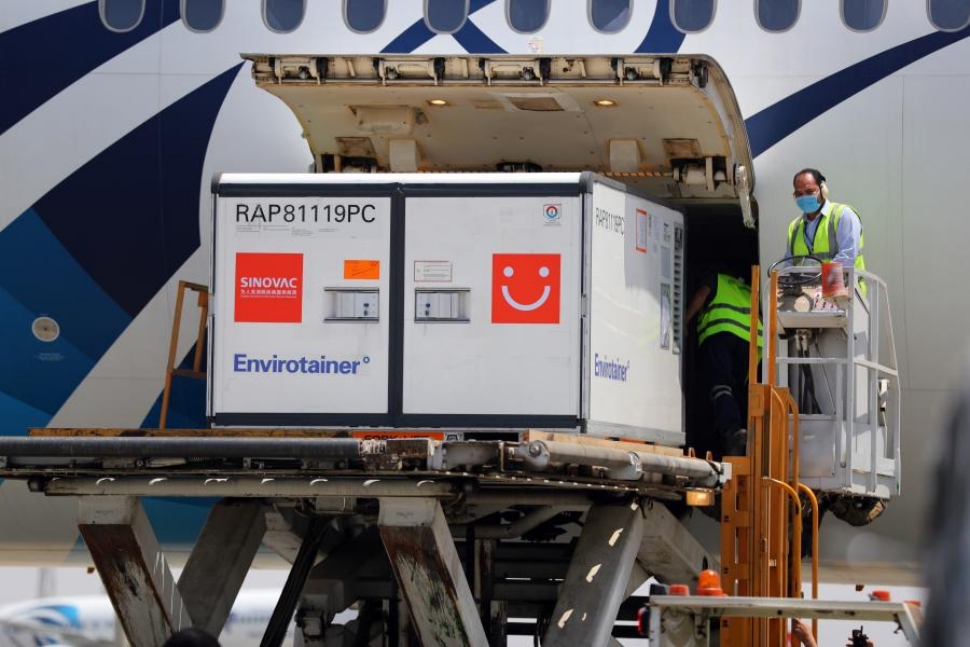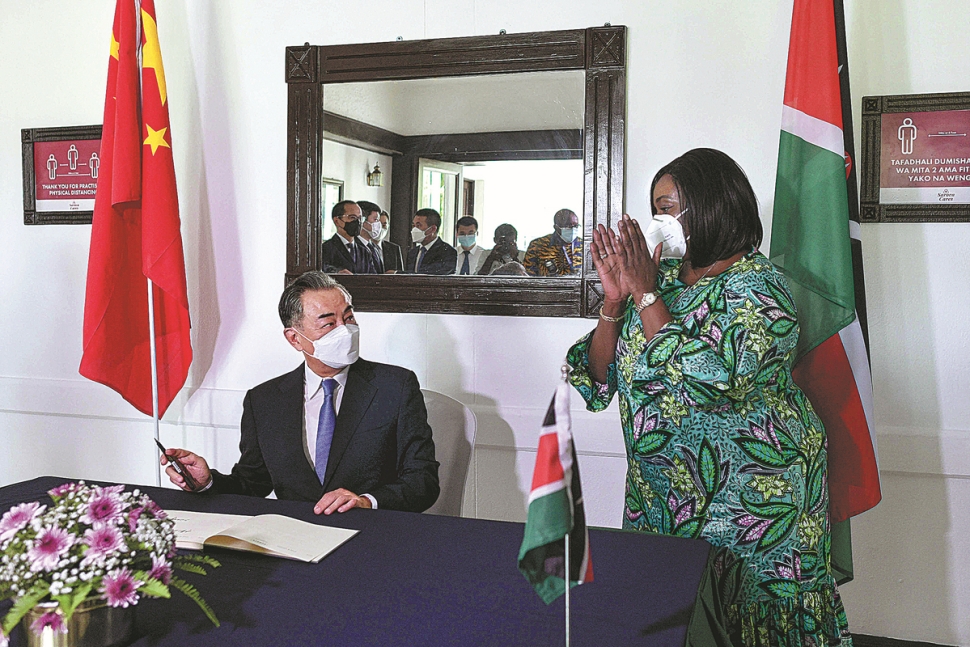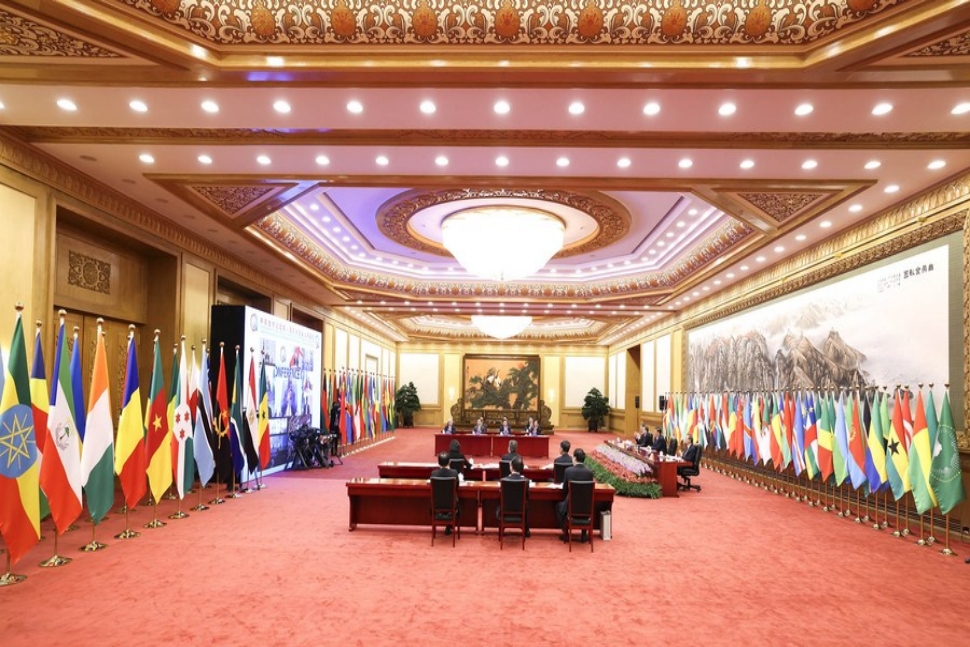trending topics
market reports
-

Registration Now Open: MEDICAL JAPAN 2026 OSAKA – Western Japan’s Largest Healthcare Trade Show
2026-02-10
-

MEDICAL JAPAN 2025 OSAKA Returns to Showcase Global Innovations
2025-02-17
-

Visit MEDICAL JAPAN 2023 TOKYO and take full advantage of the business opportunities!
2023-09-01
-

US to distribute 400 million free N95 masks at CVS, Walgreens in COVID fight
2022-01-21
-

Ethiopia receives additional 2.2 mln doses of Chinese-donated COVID-19 vaccines
2022-01-21
-

Hong Kong researchers say they develop novel material able to kill COVID-19 virus
2022-01-14
-

10 million more Chinese doses on way for Kenya
2022-01-14
-

Sino-African ties on track for a brighter future
2022-01-07
-

Efforts urged to boost COVID-19 vaccine production capacity in poor countries
2022-01-07
-

UAE approves Sinopharm's new protein-based COVID-19 vaccine
2022-01-07
Standing together in adversity
2021-09-10
China and the Middle Eastern countries have been bolstering their cooperation to jointly fight against the pandemic and promote a post-pandemic recovery
China and the Middle Eastern countries have a long-standing friendship that has stood the test of time. Since the outbreak of the novel coronavirus, they have been sticking together through thick and thin, providing timely assistance to each other, firmly supporting each other, carrying out extensive and in-depth cooperation, writing an epic in the joint fight against the pandemic with solidarity and resilience, and becoming a stellar example of building a community with a shared future for mankind.
China and the Arab nations released a joint statement on solidarity and cooperation against the COVID-19 pandemic at the ninth ministerial meeting of the China-Arab States Cooperation Forum held in July 2020. In their joint statement, the two sides emphasized that global anti-pandemic cooperation should be strengthened and an international joint prevention and control mechanism should be built to construct a "global firewall" against the novel coronavirus. Together, the two sides oppose stigmatization and politicization of the pandemic, and are making great contributions in the anti-pandemic fight by pooling their efforts.
Since the sudden onslaught of the pandemic, China and the Middle Eastern countries have set an example of solidarity, demonstrating the true meaning of "standing together to weather trying times". China's anti-pandemic cooperation with the Middle Eastern countries covers the entire region, leaving no one behind-from the Palestinian refugees to those living in the Syria conflict zone.
China has provided medical devices and materials to the Middle Eastern countries and donated or exported over 72 million doses of Chinese COVID-19 vaccines to 17 Arab states and the Arab League, delivering on its solemn promise to make its COVID-19 vaccines a global public good with concrete actions.
The world is undergoing profound changes unseen in a century, with economic globalization continuing to hit speed bumps, the resurgence of protectionism and unilateralism, the flagging global economy, shrinking global trade and investment, and new challenges to the global governance system. Under the strong leadership of the Saudi Arabian G20 presidency, the G20 leaders have reached an important consensus on rising to the COVID-19 challenges together and building a resilient and lasting post-pandemic recovery.
It is of great significance to firmly support multilateralism and free trade to promote global recovery and sustainable growth as it points out the direction for the world in the post-pandemic era and sends a strong signal to the international community. The pandemic has made China and the Middle Eastern countries more aware of the fact that only by strengthening coordination and cooperation can we achieve robust, sustainable, balanced and inclusive global growth.
The anti-pandemic cooperation between China and the Middle Eastern countries has propelled bilateral economic and trade growth. In the first half of 2021, the trade value between China and member states of the Cooperation Council for the Arab States of the Gulf totaled $103.8 billion, a year-on-year increase of 35.6 percent. Chinese imports made up $63 billion of it, up 40.2 percent year-on-year, and Chinese exports $40.8 billion, up 29 percent year-on-year. The remarkable growth in trade figures has displayed the huge potential and strong resilience of bilateral economic and trade cooperation. This is a vivid interpretation of the concept of building a community with a shared future for mankind.
In the days to come, China and the Middle Eastern countries should further bolster cooperation, learn from each other and join hands in the fight against the pandemic. In the meantime, the two sides should give full play to the supporting role of technological innovation by integrating new technologies into development, to increase the resilience of the economy and improve their crisis response.
Furthermore, China and the Middle Eastern countries should constantly foster new growth drivers. During the pandemic, the industry and commerce sectors on both sides have formed new ways of pragmatic cooperation through such means as webinars, videoconferences, digital exhibitions, online surveys and legal consultations. New forms of business cooperation such as digital cooperation platforms and digital marketing events are also thriving, injecting new momentum into the cooperation between businesses on both sides and the growth in exports of Middle Eastern products to China.
On that basis, the two sides should bolster cooperation in such emerging areas as the digital economy, e-commerce and healthcare, and bolster their collaboration and mutual learning in the development of the internet and the digital economy; encourage information and telecommunication enterprises on both sides to enhance exchanges and cooperation to further improve the quality of information and communications services and e-commerce services; strengthen exchanges between the governments of both sides on policies, laws and regulations, as well as solutions for the development of green industry, so as to jointly accelerate the structural transformation and growth of economies.
(China Daily)



 My Member
My Member Message Center
Message Center











